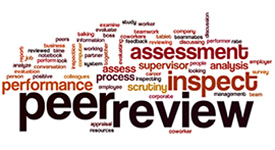Evaluation activities

The credibility and usefulness of evaluations are our main concern. This requires on the one hand, to have a good ‘ear’ for the organisation’s burning issues and, on the other, to link up with the major international players in the evaluation community to be aware of and apply state of the art evaluation methods and standards.
Our policy is to make the evaluation process inclusive and participatory. Once the initial reservations turn into open dialogue, the persons involved in implementing a CoE intervention have a lot to share and contribute to discussions. Reference groups which involve the key stakeholders guide us throughout the evaluations. As an additional support, we often rely on focus groups to give us a reality check and benefit from collective knowledge. The members are selected from those who have hands-on experience of the subject matter.
The Evaluation Policy for the Council of Europe (CM(2018)159-final) was approved by the Committee of Ministers on 13 November 2019. The main types of evaluation carried out within the Council of Europe are:
- Evaluation of projects and programmes of the biennial Programme and Budget (including thematic and cross-cutting evaluation, regional or country programme evaluation);
- Organisational evaluation (which refers to the functioning of the Council of Europe), including institutional arrangements, Council of Europe offices and Partial Agreements.
The Council of Europe Evaluation Guidelines describe in detail the implementation modalities of the Evaluation Policy, and were revised in 2020 and taken note of by the Committee of Ministers in December 2020 (CM/Del/Dec(2020)1391/11.5). They are intended for all Council of Europe staff who wish to learn how evaluation works in the CoE, and in particular those who commission and manage evaluations. The Guidelines describe the full evaluation process both for DIO-led and decentralised evaluations, from the identification of evaluation topics, planning and preparation, to the implementation of an evaluation and its follow-up, including the description of all relevant stakeholders, their roles and responsibilities.





